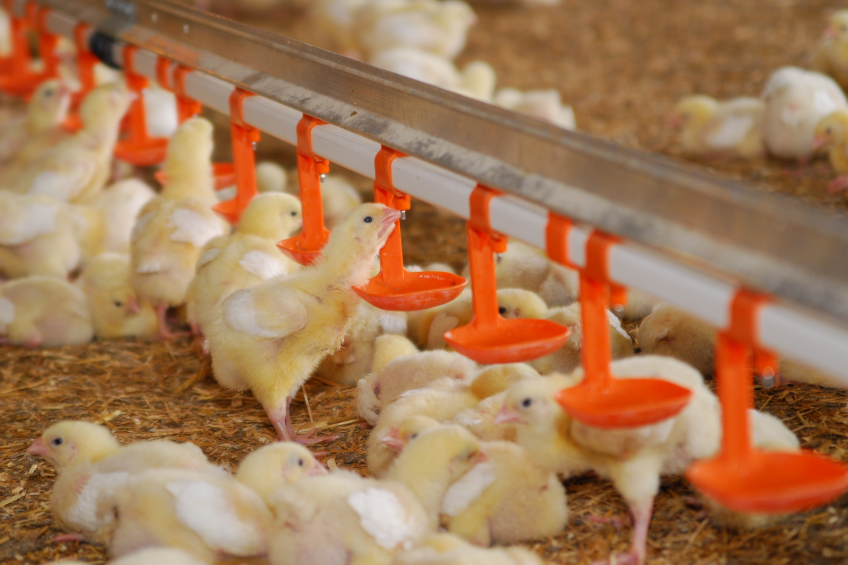The importance of 7-day weight

To get the full potential out of broiler chickens it is important that the target weight at 7 days of age should be reached. As work with the Cobb500 broiler has shown, brooding is a vital period for good overall results. Achieving good 7-day live weight will improve performance parameters such as final live weight and feed conversion as well as maintain a low overall mortality.
Over recent years more emphasis has been on the broiler chicken’s first seven days in life. During the first 7 days 80% of the energy is used for growth and only 20% for maintenance, indicating the importance of this period in the chicken’s life. According to management guidelines for the modern broiler, the birds are supposed to increase live weight 4.25 times during the first 7 days, from approx 40g to 180g. 7-day weight of the Cobb500 in comparison with hatch weight has increased by 300% over the last 20 years. Good early development of the chick reaching high 7-day weights will, for example, improve the nutritional maturity of the bird and accelerate development of the gastro- intestinal tract. Also muscle growth and development of muscle morphology improves, as will the long-term metabolic effects. The immune response in young chickens gets better, on the other hand delayed growth impairs immunological capacities. As a result, final performance will be better, eg increased total growth, improved feed conversion and better uniformity. Comparing the Cobb500 performance standards from 2008 to 2012, the 7-day live weight has increased by 8%, underlining the genetic improvement in growth at this age.
Why 7-day-weight as a measurement?
Several different parameters can be used to determine the quality of the chick at an early age such as live weight, growth, crop fill, body temperature, livability and mortality. Comparable parameter needs to be objective, easy to perform, highly repeatable and inexpensive. Measuring live weight at day 7 is a well-established and accepted way of assessing pre-placement management, brooding and chick quality. The 7-day weight has significant impact on most important parameters such as performance, carcass and body composition. There is generally a peak in mortality at day 3 to 4, most likely due to the absorption of the yolk sac in the intestine of chicks; if feed and water intake is not optimum, non-starter/cull chicks will add to the mortality that occurs a few days later. These flocks have poorer uniformity and increased number of small cull chicks which negatively affects growth in the first week. A higher average 7-day weight will minimise the number of small birds that for whatever reason have not started to eat. One concern for fast early growth is related to the risk of increased late/final mortality due to metabolic disorders such as ascites and sudden death syndromes.
Confirmation from practice
To confirm the importance of achieving a good early development, field data was collected on as hatched Cobb500 bird flocks within the European and African region. Case studies under Western European conditions show that improvements of 1g at 7 days correspond to 6g at 37 days of age. Gathered data illustrates that good 7-day weight is positively correlated with high final body weight (Figure 1). Also depending on live weight reached, there may be a bigger impact when targeting weight above 180g at 7 days of age. These data demonstrate that you may increase final weight by 80-90g when the 7-day weight increases from 160g to 180g.
Data from the field demonstrate a positive relationship between a higher 7-day weight and total mortality (Figure 2). These data conclude there is no increased risk of mortality due to higher early live weights. Complete analysis of 7-day live weight and the effect on feed intake and economics has been conducted on commercial field data. 7-day live weights of above 180g have been shown to improve feed conversion ratio by 10 points (Figure 3). The economic benefit of 180g weight at 7 days of age, compared with 170g and less, is an advantage in lower feed cost per kg live weight of 5%.
How to improve 7-day weight
7-day weights above 180g will improve final live weight and therefore it is important to achieve these weights. This can be done in several different ways by good chick quality, feed and management.















